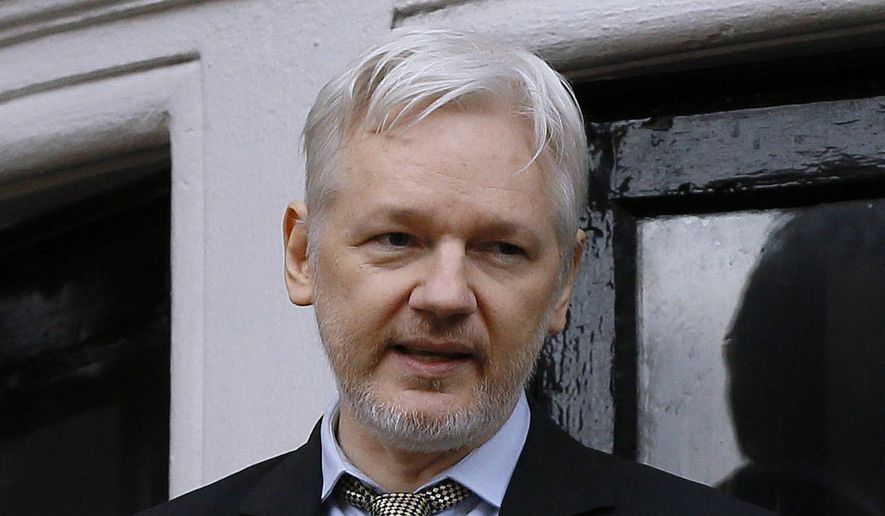OPINION:
WikiLeaks, in a stunning move, released what it called “the largest ever publication of confidential documents” on America’s premier intelligence agency, the CIA.
There are two takeaways.
The first: Julian Assange, you are never coming to America without facing arrest.
And the second: Let’s hope there’s not an Operation Mockingbird in the works against President Trump.
Operation Mockingbird — as it may or may not have been called, to use spy lingo — was a secret campaign — that may or may not have existed — begun in the 1960s to infiltrate and influence the media. Reportedly, allegedly and supposedly, the CIA funded operations to sway media, both domestic and foreign, to achieve ends favorable to U.S. interests.
Now fast-forward to the 2016 presidential campaign season, and Mr. Trump’s less-than-complimentary assessments of America’s intel agencies. In tweets over the past few weeks, Mr. Trump has made very clear he still doesn’t hold the country’s intelligence agencies in the highest of regard.
And now, do another swing down memory lane to this report, from the very excellent Zero Hedge blog, in a December 2016 headline: “The CIA, Washington Post, And Russia: What You’re Not Being Told.”
The story goes on to report how Jeff Bezos, the founder and CEO of Amazon who purchased The Washington Post in 2013 shortly after, clinched a $600 million contract with the CIA. The contract was supposed to be a deal for Mr. Bezos and his web-based business to build the CIA a private cloud for intel data.
But the conflict of interest rather face-slaps, doesn’t it? After all, The Washington Post does cover the CIA — particularly stories that cite the agency’s findings of Russian hacking activities, a topic that’s been particularly hot among the left of late.
And then there was this, from November in CNBC: “After learning the Washington Post reporters were looking into his past, Donald Trump railed against Amazon chief Jeff Bezos in a tweet storm.”
Mr. Bezos made nice — at least, surface nice — with Mr. Trump after the election, sending him congratulatory well-wishes in a tweet. But the point is this: Mr. Bezos did indeed sic his Post team on Mr. Trump.
That was then; this is now? Perhaps.
But there’s still a sour taste.
And it goes like this: The CIA’s shady background with media infiltration. The present-day tight, multimillion dollar relations between at least one noted media outlet, The Washington Post (via Mr. Bezos) and the CIA. The animosity of the CIA and the left, to include left-leaning media, toward Mr. Trump. And Mr. Trump’s very open, very public insistence on the need to revamp what he characterizes as a politically motivated intel community.
Into all this steps WikiLeaks.
The group released 8,761 documents and files on the CIA, packaged as “Vault 7 Part 1” and titled “Year Zero.” According a report in Fox News, the documents originated from an “isolated, high-security network” at the agency’s Center for Cyber Intelligence in Langley, Virginia.
The CIA, of course, is not commenting.
But WikiLeaks suggested the information it has released shows just how deep the CIA gets into spying on targets via secret surveillance and malware. The agency’s technology, for instance, allows it to capture data by infecting iPhones, Android phones, smart TVs and the like, and then send the information back quietly and secretly to its own private servers.
The documents will take days to sift through — and some are redacted, including specifics on the agency’s “thousands of … target and attack machines throughout Latin America, Europe and the United States.”
It’s that last that sparks the most interest. What exactly were the CIA’s targets in America — or whom? As Operation Mockingbird reminds, and Mr. Trump’s warnings and the Bezos angle underscore, the agency’s not exactly free of political agendas that seem to focus more on domestic, rather than foreign, entities.




Please read our comment policy before commenting.